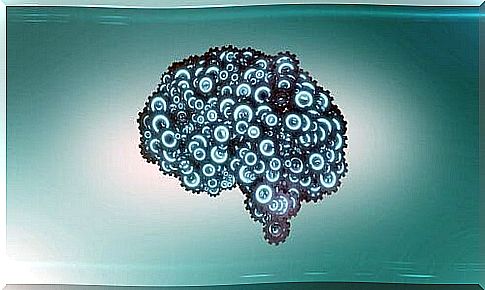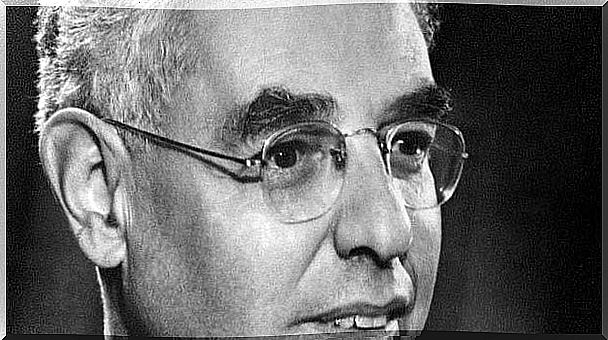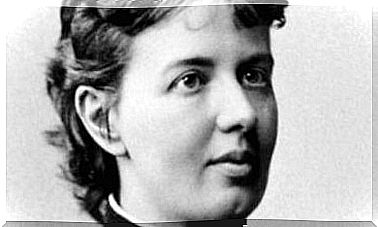Alexander Luria’s 6 Best Phrases

Born in 1902 in the city of Kazan (Russia), Alexander Luria is considered the father of modern neuropsychology. His research has become one of the pillars of this fundamental branch of psychology, for which the brain is the source of behavior. With Luria’s quotes, we get closer to his autobiography and his main contributions.
Luria grew up in a Jewish family that placed great importance on multilingualism. He and his sister were fluent in German, French, and English as well, in addition to Russian, of course, their mother tongue. He participated in more than 300 scientific publications, among the most prominent ones ” Cortical functions of man”, “Brain and the psychological process”, “Man and his conflicting world”, “Cognitive development” and ” Neuropsychology of memory “ .
multicultural education, multidisciplinary training
Luria’s academic record is quite curious. When he was only 7 years old, the beginning of the Russian Revolution interrupted his formation. Influenced by the figure of his father, a well-known professor and gastroenterologist, he entered the university when he was just 16 years old . The following sentence belongs to his autobiographical work “Looking back”, from 1979. It is a reflection on the precocity of his interest in the mind and also in psychology.

Alexander Luria’s Flexible Hierarchy
Far from considering the mind as fragmented, Alexander Luria and his professor Lev Vygotski consider the brain as a whole, in which associations between its parts are prioritized and where brain functions are not isolated or even housed in certain and closed regions. These ideas are radically opposed to those of other important researchers, such as Paul Broca or Karl Wernicke, who support the localization of certain functions in concrete areas.
The debate over the location or not of brain functions has raged for decades. Nowadays, a compromise between both postures is accepted : the brain works as an interconnected system, however, it is also possible to identify certain parts as responsible for certain processes. For example, Broca’s area could be directly associated with language expression. Another of Alexander Luria’s phrases that perfectly sums up the passion he felt for the functioning of the brain is the following:
For this neuropsychologist, the brain is organized into 3 levels: primary, secondary and tertiary. In each of them there are regions that, through a system of neuronal connections, take charge of certain functions:
- Wakefulness, primary memory and internal homeostasis: brainstem (or brainstem), hypothalamus and limbic system.
- Information storage and processing: temporal, occipital and parietal lobe.
- Mobility and behavioral programming: frontal lobe.
Together, these three levels constitute an interconnected functional system. In it, the higher functions depend on several brain areas and work in a coordinated way.

The injuries in neuropsychology
Unlike physiology, neuropsychology does not cause or cause injuries for experimental purposes. Instead, it analyzes lesions that already exist in patients, or that have already been produced by surgeries for therapeutic purposes . This amount of samples and cases is illustrated in one of Alexander Luria’s most famous sentences:
The Russian doctor’s contributions are not only centered on those people with acquired damage and on his interest in the brain’s organization in mental processes. He was also the one who designed one of the first lie detectors (polygraph). Furthermore, his first studies were devoted to the psychophysiology of work. He was always very interested in psychoanalysis and researched human affective states for the development of methods of “conjugated motor responses”.
This syllogism was this author’s strong point. Alexander formulated it during one of his visits to an indigenous location in Central Asia. His aim was to know the existence of a universal logical reasoning. For the most curious… The answer given by the locals, in general, was: “How should I know? Why don’t you ask my neighbor?”

Our brain remains an enigma
Thus, as this neuropsychologist stated decades ago, the knowledge that is currently available about the human brain is relatively small if we compare it with what we still lack to discover, but very large if we compare with what we knew a few years ago .
What is certain is that there is still a lot to be researched, despite the progress and great advances that are being made. One of Alexander Luria’s phrases that reflects this is the following:
Thus, through Alexander Luria’s phrases, many later authors have been able to resume his legacy and delve into more specific aspects, such as the neuropsychological foundations of reason. Thus, Luria’s contributions have been decisive for the development of neuropsychology and have allowed for a better understanding of the functioning of the brain and the location of certain brain areas.









